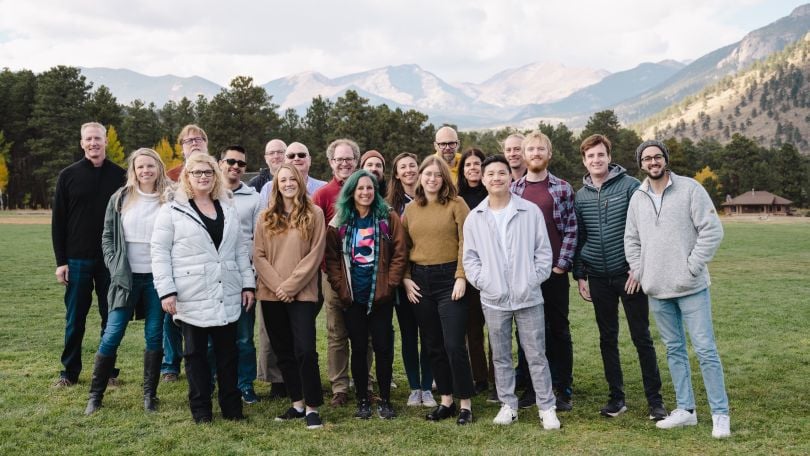The wheel, the sailboat, the printing press. Many have compared AI to these great technological inventions throughout history.
The observation does have merit in many ways. All four pieces of tech have served as mile markers, signaling new eras of the human race. All ushered in new ways to connect parts of the world and helped us communicate with one another. All introduced new forms of trade and changed how the economy functioned.
All of these tools brought their own form of destruction, as well. The creation of the wheel also introduced wartime chariots. The printing press also led to the European witch hunts, and sailing became the backbone of the transatlantic slave trade.
The impact of AI, like all transformative changes in technology, depends on how it’s being used. AI can perpetuate bias when it’s given bad data. At the same time, AI can be used to do all kinds of helpful things like identify diseases more accurately, find new protein structures and even help firefighters see through smoke to rescue victims.
The future of AI depends on who is using it — but, perhaps more importantly, it depends on who is building it.
Built In spoke with a few talented engineers who shared their thoughts about how it’s up to development teams to guide AI in the right direction.

Qualtrics is an information tech company whose platform serves as a single system of record for companies to track all experience data, managing customer, product, employee and brand experiences.
What fresh opportunities does AI open up across the industry?
In the immediate future, AI is opening up opportunities for simple code generation and brainstorming in new ways. It allows us to focus on complex problems and apply our knowledge, with a supporting lens to push on those problems. Similar to the evolution that occurred from the ’80s to ’90s with compiler systems where the operating system developer was the “best” job, and the ’90s to ’00s where the focus moved to web development and cloud development, the introduction of AI is moving us toward a new area of domain expertise.
There’s so much potential for simplifying heavy lift and repetitive tasks, that the result of this focus is going to be professionals with better skills for more challenging problems, while AI simplifies the more mundane tasks. It’s also letting us work with multiple models in a scaled manner — something that absorbed a lot of time in the past.
Imran on our team called out: “Newer generations will be more proficient with AI tools and they could start at higher abstraction and will be more efficient with complex problems. Problems they are solving will be very different from now and current skills will be replaced with new skills.”
IN THE FUTURE
When Built In asked the machine learning engineering team at Qualtrics what they thought would become common practice for engineers in the near future, they had three answers that were the top contenders.
- LLM Models will become something equivalent to a library.
- A significant role of generative AI will be in all parts of software engineering, from design and coding to testing and deployment. This would most likely shift from a human-in-the-loop to a human-on-the-loop (oversight) model in a few years.
- There will be more incorporation into a continuous integration, continuous deployment kind of process to improve code, identify security vulnerabilities and develop best practices.
What new skills have you learned as generative AI becomes common in the industry? How has your own daily work changed as you’ve integrated these tools?
The new skills have really focused on the technical refinement of our current skill sets. It’s helped push us to write code in different ways — making our code more Pythonic, for instance — as well as helping us align to best practices as we learn new programming languages.
AI is showing up for us daily — from using it to problem solve with pro/con listing, to writing unit testing, optimizing code, addressing naming conventions and more. It’s been about expediting the development process, which has allowed us to put energy toward more critical work.

InspiringApps develops mobile apps and digital products that inspire how people live, work and play.
New coding languages provided experts in other coding languages opportunities to learn new skills and increased demand for innovative thinkers. How does AI provide similar opportunities for tech professionals to grow and learn?
Generative AI can assist tech professionals in their day-to-day responsibilities by significantly reducing their time for architecture or implementation research and even writing portions of code and tests. These features can save time, enabling innovators to be more productive. It can expand our abilities to focus more on the creativity and uniqueness of our creations versus being burdened by more mundane tasks.
It’s too early to tell the full scope, but prompt engineering is one of those opportunities. That is to say, how to effectively use AI by forming effective questions is a big deal. When actively engaging in conversation with AI, this skill is obvious. For some tools that do not require the user to engage in conversation with the AI, the questions will be pre-structured. A UI with checkboxes and widgets can pull in data or documents from external sources, and then with that information, the AI can do its work.
We can also direct the AI to return responses in specific formats, sentiments and tenses or limit the response scope to be very specific. This second use case is perfect for applications built around or on top of an AI.
What new skills have you learned while working with generative AI?
AI is very powerful in its ability to make inferences from the questions you ask of it — some might call it smart — but the AI is also unable to understand your requests in terms of “what are you really asking?”
For me, the biggest opportunity is learning the scope of what is available and possible and then learning how to communicate with the AI to get the results I am looking for, regardless of how I am interacting with the AI. Consider the difference in how I use AI between having a conversation with Google’s Gemini and using GitHub’s CoPilot to help me in my integrated development environment. Gemini doesn’t run or work by itself, nor does GitHub CoPilot write code or tests without user interaction.
It is incumbent on the AI user to learn to form questions. That means engineering prompts to elicit answers that best match the true meaning of the questions you are asking. The generative AI user needs to understand the limitations of the inferences the AI can make. Asking an AI, “do you know the time in Denver?” or “what is the sum of two very large numbers?” will get you pretty useless answers.
What are some new common practices for engineers working with generative AI?
AI’s real power is to offload non-creative tasks, engage the AI in a dialogue that explores complex ideas and have it construct component work products that can be used to assemble complex applications. AI can help brainstorm product features for software, but you can’t ask it to write the entire thing — it needs guidance, even while exploring ideas. AI doesn’t always give the best answer. It may provide an answer you didn’t expect but lead you to explore a new direction.
“AI can help brainstorm product features for software, but you can’t ask it to write the entire thing — it needs guidance, even while exploring ideas.”
However, in the end, you have to decide what’s best. AI is not limited to the tech professionals’ point of view. Media artists, writers, marketers and people from all sorts of backgrounds can use AI for their work and at home, too. AI can help you construct recipes and shopping lists and organize things.
AI providers are constantly teaching and improving AI models. Its productive abilities are only going to evolve. As for Stack Overflow, a staple of the developers’ toolkit, I hope it can be more efficient than I can, reading and analyzing ten postings on the same question over a multi-year period to find the best clear and current answer to the problem I am trying to solve.







